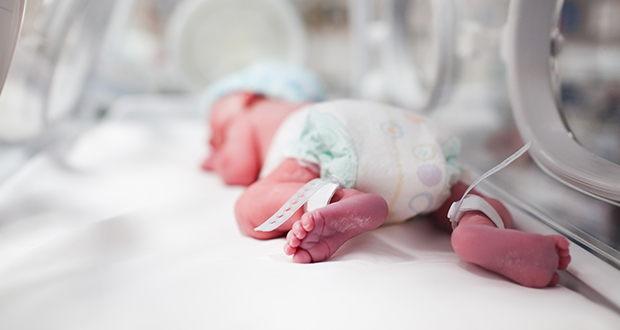Where have all the preemies gone during the pandemic?

Maternity wards across the globe have noticed something strange happening during the coronavirus pandemic. Premature births were disappearing.
Preterm birth is defined by the WHO as babies born alive before 37 weeks, with extremely preterm occurring before 28 weeks. In some of the countries that recorded a drop in preemie babies, rates of births occurring before 28 weeks dropped by as much as 90 per cent.
As reported by the New York Times, the discoveries were made at the same time in both Ireland and Denmark. Unbeknownst to each other, doctors in both countries looked at the data from the time during severe lockdowns across Europe and compared it to previous years, and found all preterm birth rates plummeted.
Dr Roy Philip, a neonatologist at University Maternity Hospital Limerick in Ireland, looked at all the births in January and February of every year since 2001 and compared the birth weights of those babies with the babies born in 2020.
Babies born under 3.3 pounds are classified as very low birth weight and made up 8 of every thousand births in his hospital. He found that number had dropped by a quarter in 2020. His hospital also recorded no births in the extremely low range, 2.2 pounds, which usually made up three in every three thousand births.
“Initially I thought, ‘There is some mistake in the numbers',” Philip said.
The Denmark researchers were finding similar results, as doctors there looked upon near empty NICUs. One hospital found the rate of babies born before 28 weeks had dropped by 90 per cent.
The researchers are stumped as to why this is all happening. They hypothesise that lockdowns may be forcing expectant mothers to actually fully rest more than before in the final term of pregnancy.
Falling pollution rates is another reason floated by academics, as is the idea that women in lockdown may have avoided other infections, such as the flu, which can increase risk of preterm birth.
Similar numbers were noticed by doctors and nurses in the US, Canada and Australia and researchers are excited by the prospect of revealing the cause of premature birth and potentially saving many children from future health problems.
However, hospitals in Australia are being cautious about the anecdotal evidence so far.
According to The Australian Institute of Health and Welfare one in 10 babies in Australia are born premature (before 37 weeks gestation) and approximately 15 per cent of all babies require some form of extra care at birth. The average gestational age for all preterm births was 33.3 weeks.
Royal Women’s Hospital obstetrician Claire Whitehead told the Nine papers that Australia’s experience of coronavirus so far is different to the rest of the world, so it is too early to draw the same conclusions.
"It's raised an important question, but we are yet to know the answer," she said.
“We haven’t quite seen the same picture here in Australia. Partly, I think because we've had a different situation in how coronavirus has affected us.
“It will be interesting to see what happens in the next couple of months in Victoria now we are back in lockdown,” she said. "These results need to be replicated before we can make any conclusions."
Email: [email protected]





